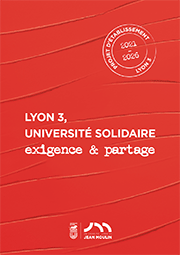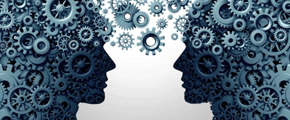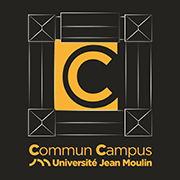AccueilRechercheProgrammes et productions scientifiquesThèsesThèses soutenuesThèses soutenues - 2006-2021Thèses soutenues - 2011
-
Partager cette page
- Recherche,
- Philosophie,
BAGHDASSARIAN Fabienne
La question du divin dans la philosophie aristotélicienne
Thèse en Philosophie - Etude des systèmes soutenue le 20 octobre 2011
Poser la question du divin chez Aristote, c’est déterminer à quelle question la conception aristotélicienne du divin est censée répondre. L’examen méthodique de l’intégralité du corpus aristotelicum et, tout particulièrement, des trois textes dans lesquels Aristote place l’étude des réalités divines au centre de son enquête (Physique, VII-VIII ; De Cœlo, I-II, Métaphysique, Lambda) permet de formuler deux conclusions principales. En premier lieu, il apparaît clairement que la question du divin n’est pas, aux yeux d’Aristote, de nature théologique, mais archologique. Nulle part, en effet, l’étude du divin n’est menée pour elle-même ; elle s’ancre, au contraire, dans un examen explicitement dédié aux principes premiers de la phusis ou des ousiai. La conception aristotélicienne du divin et des dieux est ainsi le produit d’un examen méthodique des êtres premiers et des principes, examen grâce auquel Aristote espère produire une détermination rigoureuse du mode d’être du principe en tant que tel et résoudre, par là même, certaines apories relatives à la question de l’archè. En second lieu, il convient de noter que les principaux textes dévolus à l’étude des êtres divins se distinguent les uns des autres par des nuances méthodologiques significatives. Selon que la question du divin prend naissance au sein de la science naturelle ou de la science des substances, selon qu’elle appartient à la physique ou à l’ousiologie, la preuve de l’existence des réalités divines, de même que la description de leur nature et de leurs fonctions, font l’objet de formulations diverses, toutes inféodées à la logique conceptuelle de la science qui les rend possibles. En somme, chaque examen des réalités divines se distingue par sa tournure singulière, qui n’est autre que le produit de la régionalisation des discours, c’est-à-dire de leur adaptation méthodologique aux outils de la science qui les engendre.
Studying the question of the divine in Aristotle implies to determine to which problem the Aristotelian conception of the divine is supposed to answer. Two conclusions can be drawn from close examination of the corpus aristotelicum in its entirety, and particularly of these texts in which the study of divine realities is Aristotle’s major concern (Physics, VII-VIII; De Cœlo, I-II, Metaphysics, Lambda). In the first place, it clearly appears that, according to Aristotle, the question of the divine is not a theological question, but an archological one. Indeed, nowhere Aristotle studies the divine beings in order to explore deeply the nature of the gods, but rather with the intention of investigating the first principles of phusis and ousiai. The Aristotelian conception of the divine is thus the consequence of the detailed examination of the first principles, thanks to which Aristotle thinks he will be able to define precisely the nature of the principle qua principle and then to solve some aporia about the archè. In the second place, it is worth noting that each of the three main texts in which Aristotle develops his conception of the divine is characterized by slight but significant differences in method. Depending on whether the question of the divine belongs to the science of nature (physics) or to the science of ousia (ousiology), the demonstration of the existence of divine beings and the description of their nature and causality are expressed in different ways, in accordance with the concepts employed in each science. In short, each investigation about divine beings is characterized by its singular form, which is the product of the regionalization of each inquiry, i.e. of its methodical adaptation to the conceptual tools of the science to which it belongs.
Mots-clefs : Aristote, Platon, théologie, archologie, Moteur(s) Immobile(s), théologie astrale, physique, cosmologie, quintessence, ousiologie, Acte pur, causalité, téléologie, (auto)-contemplation.
KEYWORDS: Aristotle, Plato, theology, archology, Unmoved Mover(s), theology of the stars, physics, cosmology, quinta essentia, ousiology, pure act, causality, teleology, (self)-contemplation.
Directeur de thèse : Jean-Joël DUHOT
Gilbert ROMEYER DHERBEY
Membres du jury : Marwan RASHED, Professeur , Ecole Normale Supérieure - ULM
Nakali CARLO, Professeur, Université CA Toscani, Venise
Pierre-Marie MOREL, Professeur ENS Lyon
Gilbert ROMEYER DHERBEY, Professeur émérite, Université Paris IV
Jean-JOël DUHOT, Maître de conférences HDR, Université Jean Moulin Lyon 3
Président du jury : Marwan RASHED
Mention : Très honorable avec les félicitations du jury
Equipe d'accueil : IRPHIL







